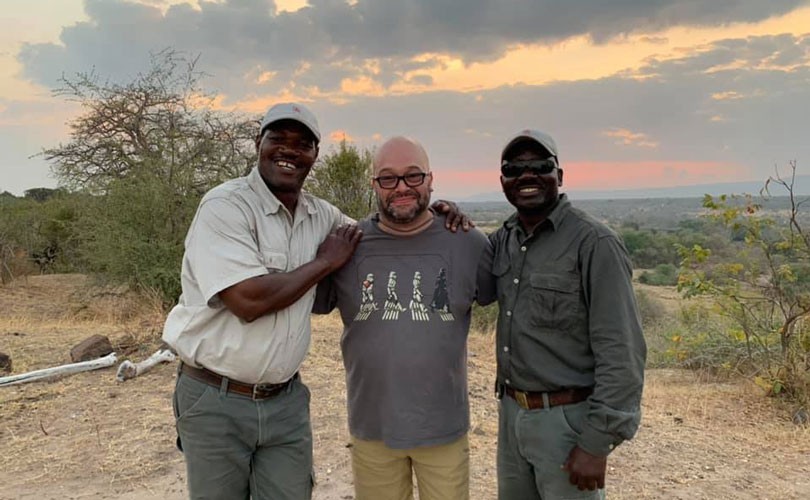Out of Africa: How a Safari Company Creates a Culture of Pride and Excellence in a Really Simple Way
I’m just back from a trip of a lifetime with my family to Africa. We went to Tanzania to safari at two different camps run by the same company, Nomad Tanzania. Like any vacation, the plan was to “unplug” and not think about work. Little did I know that I would soon find myself thinking about work — and what can make a really great workplace (more on that below).
Full disclosure: This was neither a trip I wanted to do nor advocated for. I had a number of fears that made the prospects of going on safari very unattractive for me. Fear number one? Hippos. I have read countless articles about how aggressive they are and how they kill more people every year than any other animal in Africa. This trip would include LOTS of hippos and even boat cruises on rivers going right near them.
My second fear was camping in the bush. We would be literally living in the bush in tents or cabins with NO WALLS and sleeping in fly tents. After much prodding and nudging from the family I decided I would go — begrudgingly.
Why am I telling you this? Because my experience in Tanzania was made outstanding by people who understood my fears, helped me through them, and did everything in their power to make me have the best experience possible. Now you might be saying, “Wow, Ed, your family did that for you?” Ha, ha — no. They teased me mercilessly (teen and preteen kids excel at this). No — it was the staff at the camps that did all of that and then some.
I took a two-and-a-half-week trip to get away from recruiting, branding, and HR, and yet I couldn’t escape it on the other side of the world with no internet or phone access. The folks at Nomad Tanzania not only showed me a great model for hiring, but also retention and engagement. Literally every “business buzzword bingo” term (like “employee engagement” and “core values”) that’s hot in the streets these days seemed to be done to perfection — all by a company that doesn’t read “thought leadership” articles or go to conferences to hear about how XYZ company did X in just 6 months.
I was particularly struck by one of our guides, Rajabu Hussein (pictured above with me), who prefers to be called Raj. Raj met us at the airport upon landing at the Kigelia Camp. From the minute our feet touched African soil, he was not only incredibly warm and welcoming, but insistent that we were comfortable and happy. His personality was magnetic, his way with our kids friendly and welcoming, and his knowledge of the animals and bush beyond compare. He answered all of our questions, got to know each of us personally, and made every safari with him amazing (the animals and scenery didn’t hurt too). He was so good that the kids — and even some of the adults — were arguing every safari about who got to go in Raj’s truck.
What’s more, he didn’t laugh at my fears (ok — maybe a little bit), and really educated me and made me feel not just comfortable but excited about what we were doing.
During safaris we would do what is called a “sundowner,” which is basically having drinks and snacks in the bush at the end of the day in some epic spot where you can catch the sunset and see lots of wildlife. At one sundowner, the HR and recruiting guy in me needed to talk to Raj. I pulled him aside from the group and started asking him questions about his job, his goals, and his company.
First, Raj told me about his life growing up in Tanzania and about how proud he was of his wife and child. I then asked him about being a guide — had it always been a goal of his? How did he get to be one? Raj was a seemingly young man in comparison to the other guides, so I was very curious about his career path. He answered by saying that he was first hired as a cook, but the company has programs in place for employees to “test” several roles and to see which ones meet both their passions and their skills. Raj worked as a cook, in services, and then got the chance he wanted — to learn under a senior guide and then ultimately become one himself, all within the course of less than four years.
Raj’s story also wasn’t unique. In my conversations with other staff members, I don’t think I met one employee who didn’t beam with pride about working for Nomad Tanzania. You could feel their happiness with their mobility, their work, and their pride in being part of a company that values them so much. Some of the folks I met had worked with the company for over 15 years, and no one seemed to have any desire to find something else. They were appreciated, valued, and given countless opportunities. Nomad Tanzania was clearly an “employer of choice” (as the kids these days like to say). In fact, all of the staff I spoke to discussed how getting a job at Nomad was a real honor in their communities.
Of course, this got me thinking (I do that from time to time). It all seems so simple really. Hire great people and let them learn and grow with you. Enable them to find their passions. Give them the opportunities to thrive, and show them how you appreciate their work. While simple in theory, most companies in the world cannot seem to grasp this elemental and HUMAN way of working. We hire for skills and experience, expect short tenures, and backfill to fill current needs. We worry about reviews on Glassdoor, try to build cultures around values, put in tons of performance and review metrics, give assessment tests, ask employees to learn on their own time, rarely hire from within, and are always looking to automate every single process.
Yet sometimes simple is better. I was blown away on this trip as much by the staff at Nomad Tanzania as I was by the lions, giraffes, and yes, even the hippos. So much so that I am writing a post about it. The company’s secret isn’t some newfangled management approach or some buzzy thought leadership tactic. When it comes right down to it, there’s no secret at all. Just hire great people and give them the ability to grow and learn in an environment where it is encouraged and appreciated.
To Raj and the other great staff members at the camps I visited — thank you. I am inspired by you and your company.
To receive blog posts like this one straight in your inbox, subscribe to the blog newsletter.
Topics: Company culture Recruiting strategy
Related articles




